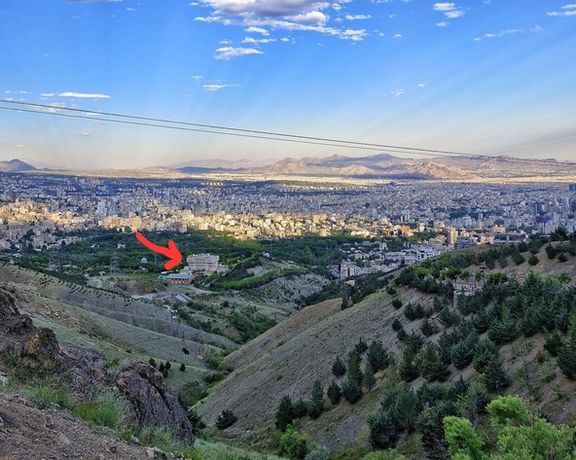While the Iranian Revolutionary Guard Corps (IRGC) initially reported the incident as involving a "projectile from the air," new information points to a more intricate situation. The incident has triggered widespread controversy and speculation regarding the true nature of the attack and the weaknesses in Iran's security systems.
Proreform Roydad24 website has uncovered details indicating that the Tochal mountainous area, overlooking Haniyeh’s residence, was heavily secured on the day of the incident. According to the report, "On the day of the incident, the Tochal was under security protection, and all security camera footage from Tochal’s stations was seized by security personnel."
Tochal is a mountain and ski resort situated in the Alborz mountain range, near the metropolitan area of Tehran in northern Iran. The area features a 12-kilometer (7.5-mile) ridge, with its highest peak, also named Tochal, reaching an elevation of 3,963 meters (13,002 feet) above sea level. The Tochal Complex includes a gondola lift that transports visitors from Tehran to the ski resort and hotel.
Hamid, who manages a business at Tochal Station 1, reported being awakened at 5 AM by his staff, who informed him that intelligence agents had arrived and requested the store's security footage. Upon arriving at Tochal, Hamid discovered that access to the area was restricted, and everyone present was detained and interrogated until 1 PM.
Residents of Tochal reported hearing a loud noise and a roar around 2 AM on Wednesday, though no visible explosion was detected from the Tochal stations. This aligns with the IRGC’s updated statement suggesting that the projectile was fired from outside the guesthouse area, likely from the Tochal mountains. However, the exact identity of the damaged building remains unconfirmed.
Fars News, an IRGC-affiliated media outlet, initially reported that the attack was executed using a "projectile from the air." This report sparked a series of theories, including missile launches from outside Iran, pre-positioned bombs, and even drone or aircraft attacks.
Khalil al-Hayya, a senior Hamas official, claimed at a Tehran press conference that the assassination involved a missile.
"A missile hit the room where Haniyeh was staying, breaking the glass before impact and causing the wall to collapse," al-Hayya stated.
The IRGC’s subsequent confirmation on Saturday matched Roydad24’s findings, noting that a short-range projectile witha 7-kilogram warhead was used, and the attack came from outside the guesthouse area.
Initial official statements placed Haniyeh’s residence in northern Tehran, near Saadabad. However, IRGC-affiliated sources later pinpointed it as being within a Thar-Allah Headquarters base in northern Tehran.
Reports on Telegram channels close to the IRGC claimed that Haniyeh was secretly housed at a facility in northern Tehran, with even the building caretaker and local police unaware of his true identity.
Following the incident, images of a partially damaged building were published, reportedly within an IRGC base in Saadabad. Maxar Technologies provided satellite images showing minor differences before and after the incident, reinforcing media speculation about the building’s location.
Although Fars News denied the reports, stating Haniyeh was hit in Zafaraniyeh, social media users also shared images of a building in Saadabad, visible from the Tochal mountains.
The simplicity of the missile launch scenario might seem too straightforward, but Israel’s past sabotage and assassination operations in Iran have often relied on similar methods.
Former Iranian Intelligence Minister Ali Younesi highlighted this issue in July 2021, warning that Mossad’s infiltration posed a serious threat to Iranian officials.







